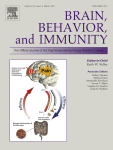Alcoholism is a disease characterized by continued alcohol consumption despite recurring negative consequences. Thus, medications that reduce the drive to consume alcohol can be beneficial in treating alcoholism.
The neurobiological systems that regulate alcohol consumption are complex and not fully understood.
Currently, medications are available to treat alcoholism that act either by causing accumulation of a toxic metabolite of ethanol, or by targeting specific transmitter receptors.
The purpose of our study was to investigate a new potential therapeutic pathway, neuroimmune interactions, for effects on ethanol consumption. We hypothesized that neuroimmune activity of brain glia may have a role in drinking. We utilized minocycline, a second generation tetracycline antibiotic that has immune modulatory actions, to test our hypothesis because it is known to suppress microglia, and to a lesser extent astroglia, activity following many types of insults to the brain. Treatment with 50 mg/kg minocycline significantly reduced ethanol intake in male and female C57Bl/6J mice using a freechoice voluntary drinking model. Saline injections did not alter ethanol intake. Minocycline had little effect on water intake or body weight change. The underlying mechanism whereby minocycline reduced ethanol intake requires further study.
The results suggest that drugs that alter neuroimmune pathways may represent a new approach to developing additional therapies to treat alcoholism.
Request Reprint E-Mail: peter.syapin@ttuhsc.edu
